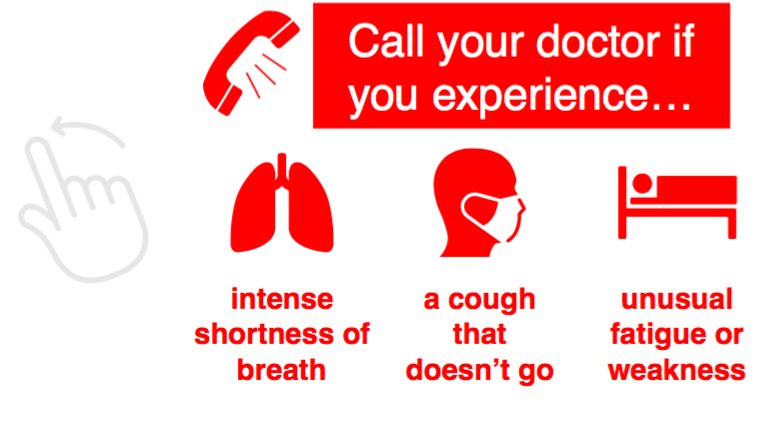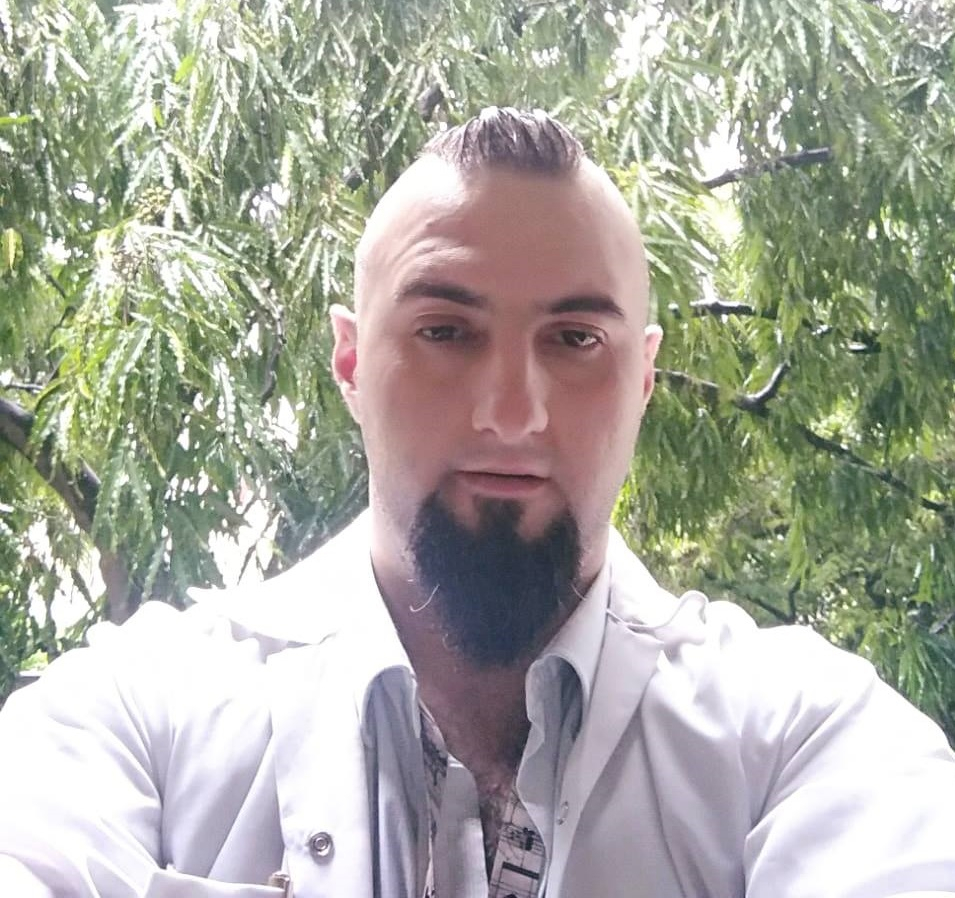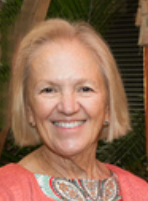StoryCare: We translate discharge instructions into visual cards
by Roy Cohen

Hospital readmissions are extremely costly, and often caused because patients do not understand release instructions. We turn any set of instructions into legible, visual, easy-to-follow mobile GIFs.
New York, NY United States Patient Education Home-Based Care Art in Healthcare MedStartr Ventures challengeAbout our project
The problem we solve: At approximately $40 billion per year, hospital readmissions are extremely costly to the healthcare system. Studies have linked readmissions to the poor understanding of hospital release instructions by patients. BitHealth turns any set of release instructions into a set of easy-to-follow image-and-text cards sent as GIFs directly to the patient.

About our solution: Based in Cornell Tech, we have developed this product under the guidance of healthcare experts and practitioners. One of our co-founders is an award winning filmmaker, who has deep expertise in visual communication. We leverage text summary technology that has been tested on millions of users, and are developing an original database of images tailored for this problem. We are constantly testing the product with patients as well as healthcare professionals, and are getting great responses.
Progress to date:
We have a pilot customer at Weill Cornell and a partner who is interested in a collaboration at Sheba Hospital in Israel. We have received resonating enthusiasm from the healthcare industry, including some professionals whose names we cannot yet use but whose involvement would be an immense contribution to any project. We are at prototype stage in terms of our patient-facing product: we can create a GIF for any set of instructions. However, our goal is to adapt our technology to fit into future EMR systems at our partners' hospitals, so we could easily scale across large caregiver networks.
About Our Team

Creator: Roy Cohen
Education: Cornell Tech
Bio: Roy Cohen is a Master's of Information Systems student at Cornell Tech and a 2017 STEM Media fellow at the National Science Foundation. During his first year at Cornell Tech, Roy co-founded Ursa Technologies, which specializes in transcribing and synthesizing qualitative data. He is a producer and director of documentary film; his award winning film about artificial intelligence, "Machine of Human Dreams" (2016) was selected for dozens of festivals and sold to 12 TV stations worldwide. Roy has a B.A. in Neuroscience from Harvard University, and is passionate about effective and inclusive communication in the tech community.
Title: Student
Advanced Degree(s): M.Sc candidate
Twitter: @StoryCareHealth
About Team Members
Kiyan Rajabi
Student, M.Sc. Information Systems
Biography: I'm a dual masters candidate at Cornell Tech & Technion studying computer science as it pertains to health technologies. I'm currently taking coursework and pursuing projects at the intersection of digital health and information systems. I previously worked as a healthcare consultant leveraging data analytics for payers and providers and at a digital health accelerator.
Title: Student
Advanced Degree(s): M.Sc. Information Systems
LinkedIn:
http://www.linkedin.com/in/kiyanrajabi/
About Our Company
BitHealth
Location: 2 W Loop Rd, New York, NY
New York, NY 10044
US
Founded: 2017
Product Stage: Prototype/MVP
YTD Sales: Working on it
Employees: 1-2
How We Help Patients
Our product is primarily about patient engagement. All the monetary and systematic benefits would be a result of successful patient engagement. We want to engage patients with easy to read text, which we immediately create from the original release instructions. And we want to engage them with compelling visuals from a library that we will start to create once funding becomes avaialble. Right now, we are testing our proudct with images from the creative commons and with text generated from open APIs, and we are seeing amazing results. It is patient engagement that got us started, and it is what we will always aim for moving forward.
How We Help Physicians
Physicians understand more than anyone that good release instructions are crucial. But when will they ever find the time to write and illustrate their instructions so that every patient could easily understand them? That's where we offer a solution!
How We Help Hospitals
Hospitals and insurance companies spend more than $40 billion a year on hospital readmissions. It has already been established that a large part of readmissions owes to patients not understanding the release instructions given to them. BitHealth aims to mitigate that problem by providing hospitals with a tool that is easy for nurses and doctors to use -- and easy for patients to read and follow.
How We Help Partners
n/a
Challenge Mission
Key Milestones Achieved and Planned
In our first six months, we have already managed to creat BitHealth stories for two clinical cases. We have found keen partners at two internationally renowned hospitals. We are now working with legal experts to tackle some of the complicated questions in incorporating our product into doctors' practices. In the next six months we expect to pilot the product at selected clinics, and to continue marketing efforts in the United States.
Our Competitive Advantages
At the moment, we are aware of three other teams working on similar solutions. Two of these teams are in academia, and their timeline for product launch seems much longer than ours. The third team we are aware of is focusing on video, as opposed to still-image-based GIFs; we aim for a more diverse group of customers. We believe we are ahead than our competition in tackling the legal questions involved in bespoke patient education, a crucial aspect for a company that is truly looking to scale.
Barriers to Entry
N/A
Traction, Funding and Partners
We have partnered with clinicians who are eager to test our product and potentially lobby to incorporate into their hospitals' systems: Dr Heather Yeo at Weill-Cornell and Dr Nathalie Bloch at Sheba Hospitl.
Innovation Details
Intellectual Property Summary
This problem has been tackled by many entrepreneurs, and at the moment we are still relying on APIs offered by other companies. We are, however, working towards building this product further.
Clinical Information
Qing et al, 2008: “Improving Patient Comprehension and Recall of Discharge Instructions by Supplementing Free Texts with Pictographs”.
https://academic.oup.com/jamia/article/23/6/1136/2399280/Automated-pictographic-illustration-of-discharge
Regulatory Status
We are in early stages, and so we are just piecing together our FDA clearance plan. Cornell Tech has a legal team that we are just starting to talk to. However, we do know that patient release instructions are protected by the FDA, as they are private. We are aware of it and are working together with our partner clinician at Weill-Cornell to address this issue.
How we will use the funds raised
First and foremost, we will develop an image database tailored for patients at our first clinic (most likely, a colon cancer expert at Weill-Cornell), and invest in good design and user testing to find what resonates with patients.
Secondly, we will hire a machine learning programmer who will imbue our MVP with a competence of telling apart good image-text matches from bad ones. To explain that last point: while our initial MVP is manually tailored (we match instructions to images), our long-term goal is to have the system automatically generate image-text matches for any set of release instructions. We will use funding to hire talent that could help us do that.
Thank You
We are two co-founders: a healthcare consultant and a documentary filmmaker, who have come together at Cornell Tech to help people in the United States overcome a helpless situation. We have such amazing tools at our fingertips, but so little is done to help people of distinct literacy levels in the healthcare system. We are doing what we do because we truly want to help patients take care of themselves when they are most vulnerable. Thank you for your time.
Updates
No updates found .
Supporters
-

09/22/2020 - Liked the project.
12/01/2017 - Liked the project.
12/01/2017 - Followed the project.
11/24/2017 - Liked the project.
Comments
-
Tiffany M. Peterson posted on 1st December, 2017
Really love this idea especially since many patients comprehend information differently. Also, kudos on answering how your product intends to help patients. It should always be first & foremost!
Click here to LoginInstant Feedback
Help us find best new ideas to fund by telling us what you think. Your feedback goes straight to the team behind this project in private, so tell them what you really think.
66Medstartr
Index Score66
Interest
Score0
Adoption
Score5
Likes0
Partners0
Pilots1
Follows-
This campaign has ended but you can still get involved.See options below.
$ 10,000 goal
Instant Feedback
Help us find best new ideas to fund by telling us what you think. Your feedback goes straight to the team behind this project in private, so tell them what you really think.


